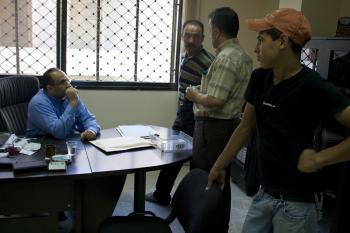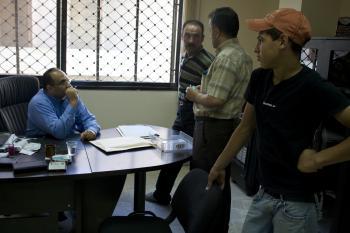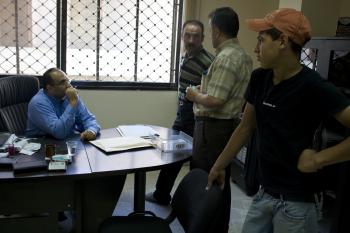NABLUS, Palestinian Authority—Ibrahim Jaber’s phones are constantly ringing and his office is a merry-go-round of staff and visiting clients who have meetings standing up. Jaber is the branch manager for the United Nations Relief Works Agency (UNRWA) in Nablus, in the West Bank. Through UNRWA’s Microfinance and Microenterprise Department, Jaber oversees the disbursement of at least 100 new small, targeted loans to small business owners every month.
“The bank looks for people who are a good risk,” says Jaber. “We are looking for poor people.”
UNRWA administers three funding programs, of which the donor-based capital fund is US $3 million, almost 30 percent of which is donations from the United States. The funds for approved loans are distributed to business owners via installment checks.
Jaber’s office houses thick files of client records, written in Arabic and English that date back to 1998, when the Nablus branch office became UNRWA’s first Microenterprise Credit (MEC) project in the West Bank.
After peace talks failed and war between Israel and the Palestinian Authority broke out in 2000, it marked the beginning of a downward economic spiral that many of UNRWA’s clients in Nablus (which was a wartime hotspot) are still struggling to recover from.
From April to October, 2002, the Nablus branch office lost scores of portfolios due to bad debts because of regional instability. As Nablus became cut off by war and strict checkpoints, it became almost unfeasible for some small businesses to survive.
Small Business Owners in the West Bank Struggle to Survive
Ibrahim Jaber’s phones are constantly ringing and his office is a merry-go-round of staff and visiting clients who have meetings standing up.

UNRWA representative Ibrahim Jaber talks with clients in his office in Nablus, in the West Bank. Genevieve Long/The Epoch Times
|Updated:





